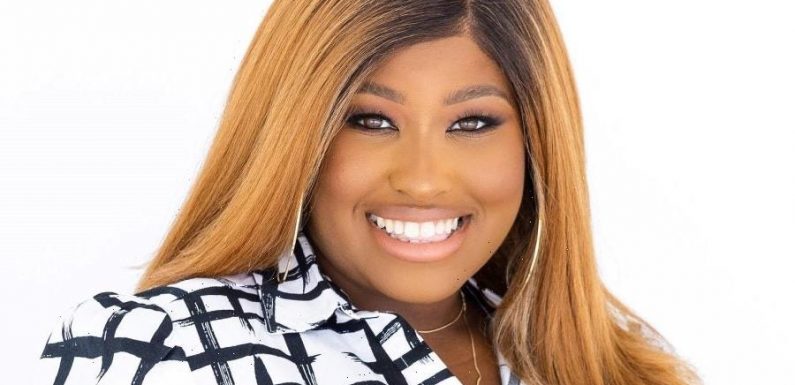
“The Black female iconography has been the saviors, cooks, cleaners, caretakers of their children and other people’s children, the ones responsible for making things better that we didn’t mess up in the first place, the sex objects, superheroes, the magical negro, the ones that are everything to everyone while operating under a public gaze that has constructed this superhuman stereotype.” – Nilé Livingston
What happens when your superhero is also your villain?
That’s the question Frantasia Brown, 33, often found herself battling to answer during her tumultuous childhood under the tutelage of her mother.
“She was mentally, physically and spiritually abusive,” she said.
Growing up in Omaha, Nebraska, Brown said her mother, who she believes suffers from undiagnosed clinical depression, was once her best friend.
“She taught me everything I needed to know about femininity and I looked to her for everything when I was a little girl,” she shared. Raised in a mostly white town, Brown says she thinks the societal pressure of caring for a child as a single parent took a toll on her mother.
As she grew older, things took a turn for the worse and Brown noticed her mother’s behavior turn dark.
“She would often berate me if I didn’t do something right,” saying she’d be met with a slap in the face from her mother, often unwarranted. To cope, Brown said she would overcompensate by telling her mother stories or jokes.
“For a long time, I would escape by reading or writing, and I’d try to share what I’d discovered with my mother to make her happy again, but it didn’t work.”
Eventually, Brown said the internalized pain from their fractured relationship showed up in self-destructive ways.
“I just didn’t care about her anymore…and then I stopped caring about myself,” she shared with Essence. “I was choosing partners I knew didn’t care about me, not prioritizing my well-being and it was because of what I’d encountered with my mom.”
She’s not alone.
In an October 2020 episode of the popular multi-generational show The Red Table Talk, co-host Willow Smith who 19 at the time, called out her famous mother Jada Pinkett-Smith for being harder on her than Jaden Smith, her older brother.
Visibly taken aback, but sympathetic, Pinkett-Smith explained that society at large is tougher on Black women, so she felt she was preparing Willow for what was to come as she got older.
Although her words rang true about the overall treatment of Black women, the effect it had on Willow is representative of so many other daughters that don’t have the access to help (and a large platform) like she does.
This early adultification of Black girls has been studied for years.
In a groundbreaking paper by Georgetown Law, it was found that “adults think Black girls as young as 5-years-old need less protection and nurturing than their white peers,” the Rebecca Epstein the report’s said report co-author said.
Their follow-up study, released in 2017 tracked how this maltreatment affected them as they grew older. “Almost all the black girls and women we talked to said they’d experienced adultification bias as children,” said Jamilia Blake, the paper’s co-author. “And they overwhelmingly agreed that it led teachers and other adults to treat them more harshly and hold them to higher standards than white girls.”
Brown poignantly pointed out that the toxic behaviors exhibited from adult mothers to their daughters leads to imposter syndrome.
“That need to overcompensate, overextend myself and overwork at my jobs all stemmed from trying to make my mother like me,” she shared.
Impostor syndrome , defined as when a person believes they are an intellectual and professional fraud plagues more than half of women compared to just 24% of men, per recent findings. The numbers are even worse for
For Black women it’s even worse. A 2020 study by the Indian Institute of Management stated that, for Black doctoral and postdoctoral scholars in STEM, gender was one of the many intersecting identities that contributed to feelings of impostor syndrome.
Experts link that lack of innate confidence to parental relationships, specifically mothers.
“Daughters develop resilience, and coping mechanisms from adversity from their mothers,” wrote Joyce E. Everet alt, Laverne D. Marks and Jean F. Clarke-Mitchell in their report A Qualitative Study of the Black Mother-Daughter Relationship: Lessons Learned About Self-Esteem, Coping, and Resilience.
Brown didn’t realize her self-destructive behaviors were connected to her painful childhood until she became pregnant with her daughter at 20-years-old.
“I was young when I found out I was having my baby girl but I knew immediately that I wouldn’t repeat the vicious cycle I’d been fighting with my mother,” she said.
A part of her healing journey included writing a semi-autobiographical book about her painful maternal relationship entitled ‘Batter: The Makings of a Tough Cookie.’ In it, she said she vividly paints the picture of abuse she endured from a young age, and traces how that led to her wayward decisions later on. Brown said she wants it to serve as not only a tale of empowerment, but a cautionary one as well.
“I needed to learn to love myself, and that’s what the book helped me do,” she said, also sharing that although her mother and her are still not close, she’s at a place of acceptance, which brings her peace.
Now, through her faith-based life coaching practice, Healing Mama’s Wound, she’s helping other Black women nurture their inner little girl one step at a time.
“It’s not easy healing life-long trauma, but it’s so worth it.”
Source: Read Full Article